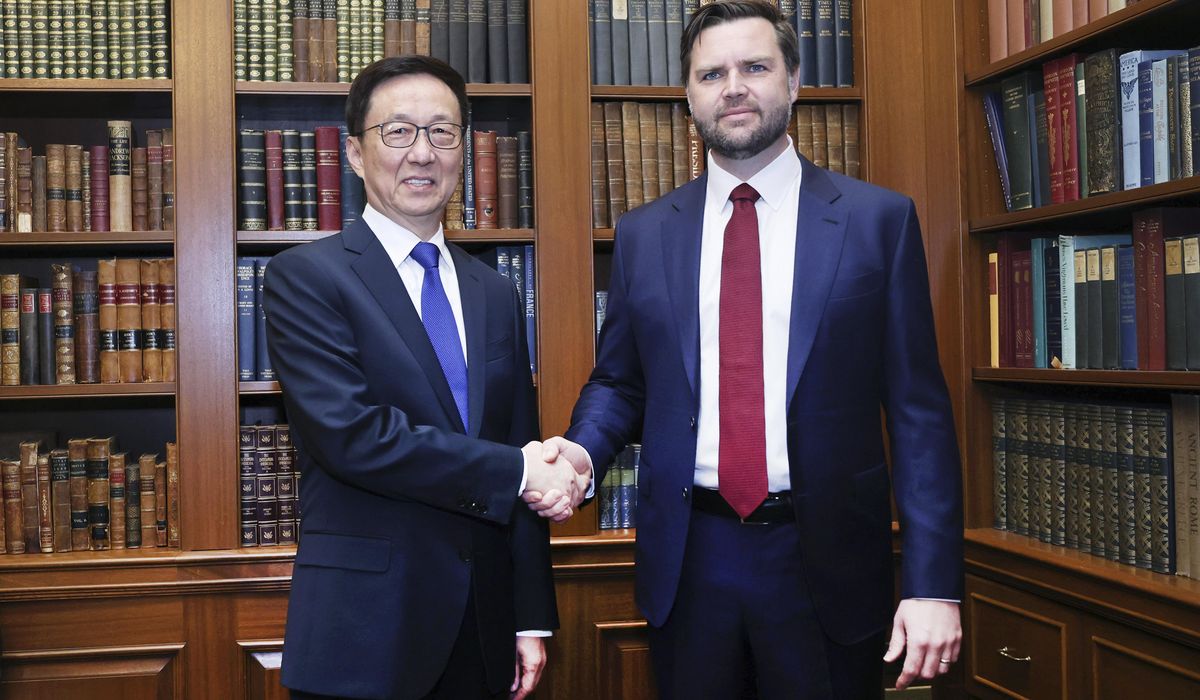


Chinese Vice President Han Zheng, Argentine President Javier Milei and other foreign dignitaries were in attendance at President Trump’s inauguration on Monday, even as the new commander in chief vowed to use the full weight of his power to put American interests first.
Mr. Han attended in place of Chinese President Xi Jinping, who was invited to the inauguration in Washington but did not attend. Former British Prime Minister Boris Johnson, Italian Prime Minister Giorgia Meloni, Australian Foreign Minister Penny Wong, Indian Foreign Minister S. Jaishankar, and Japanese Foreign Minister Takeshi Iwaya were among the other foreign dignitaries who made the trip to the U.S. for the event.
Mr. Han’s attendance was the most newsworthy. Before the inauguration, Mr. Han met with Vice President J.D. Vance and tech billionaire Elon Musk, who will co-chair Mr. Trump’s new unofficial “Department of Government Efficiency.”
A readout from the Trump-Vance team said that Mr. Vance and Mr. Han “discussed a range of topics including fentanyl, balancing trade, and regional stability.”
Mr. Xi sent a message of congratulations to Mr. Trump after his November win, telling him the U.S. and China “stand to gain from cooperation and lose from confrontation.”
Mr. Trump spoke by phone with Mr. Xi last week and said the two men had a good conversation, despite a long list of major outstanding issues between the two powers.
“The call was a very good one for both China and the U.S.A.,” he said on Truth Social after the call. “It is my expectation that we will solve many problems together, and starting immediately. We discussed balancing Trade, Fentanyl, TikTok and many other subjects. President Xi and I will do everything possible to make the World more peaceful and safe!”
At a press conference Monday, Chinese Foreign Ministry spokesperson Mao Ning said that China is ready to embrace a “new starting point” with Mr. Trump, who clashed repeatedly with teh Beijing regime in his first four-year term.
“China stands ready to work with the new administration of the U.S., under the strategic guidance of the presidents of the two countries and in the principles of mutual respect, peaceful coexistence and win-win cooperation, to maintain communication, enhance cooperation, properly manage and control differences and secure greater progress in China-U.S. relations from a new starting point,” she said.
• Ben Wolfgang can be reached at bwolfgang@washingtontimes.com.
